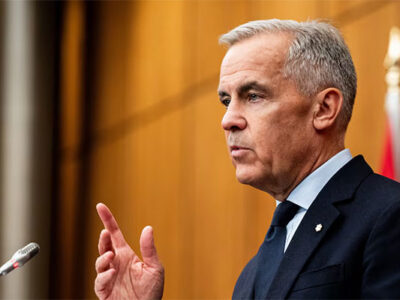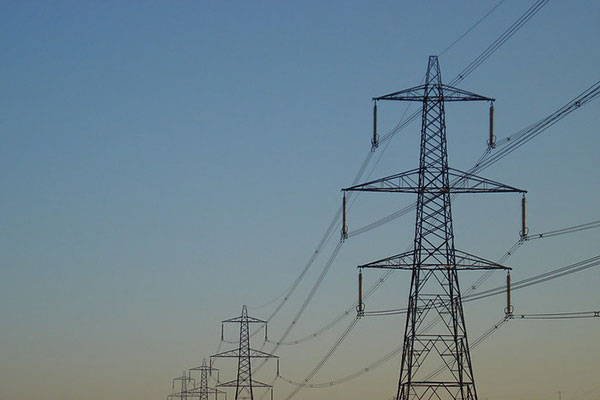Natural Light lamps, handheld solar lamps, are now bringing light and a better life to people in Zambia. The lamps are particularly crucial in Zambia as only 20 per cent of the population have access to electricity. When darkness falls, the remainder live without electric power, with their only light source being paraffin lamps, candles or bonfires. Even childbirth at night must often take place by the light of a mobile phone alone.
Copenhagen, Denmark — Globally, 1.2 billion people have no access to electricity. On the occasion of VELUX 75th anniversary the company decided to address this issue. Together with the social business Little Sun and the NGO Plan International they are collaborating to bring clean, reliable and affordable light to off-grid regions in Zambia, Sierra Leone and Zimbabwe.
14,500 Natural Light lamps from the VELUX Group have now arrived in Africa and the first recipients can already look forward to a better quality of life.
Among them are young girls between 10 and 18 years of age who live in a safe house in the slum area Mntendere in the Zambian capital Lusaka.
“The lamps mean the girls can do their homework when they get back from school and can feel safer at night, instead of huddling together in the dark after sunset. And it’s particularly important for our children that they feel safe – many are carrying the mental baggage such as the trauma of violence, rape or drugs,” says safe house manager Verann Delarey.
One of the girls, 17-year-old Sandy, has lived in the house for five months.
“Now I can read at night and do my homework. We used just to go to bed as we weren’t allowed candles in our house because of the fire risk – they were too dangerous with so many young children around,” says Sandy.
Lamps generate business
Apart from generating light in the hours of darkness, the Natural Light lamp can also help generate business for many people in Zambia. The NGO Plan International has already engaged and trained a group of 70 young people in this income generating project. The young entrepreneurs sell the lamp, earning them a small commission for every lamp they sell so that they can buy more new lamps – thus kick-starting their own businesses. One of these new sales people is Adrian Mwaanga, who sees great potential for Natural Light in Zambia.
“The Natural Light lamp has enormous potential out here in the country. I have sold eight lamps in three weeks, even though it’s a major investment for many people. Once you’ve got people to understand that the lamp is cheaper in the long run than paraffin for oil lamps or batteries for a torch, it’s easy to sell, ” says Adrian Mwaanga.
“Suddenly, a family can see each other and do something useful in the dark hours – and it helps me support my family,” continues Adrian Mwaanga with a smile.
Childbirth by the light of a mobile phone
Nurse Bertha Musonda works at a local health clinic, four hours’ drive north of Lusaka, regards the solar powered lamps as an important step forward in the work towards eradicating paraffin lamps, which are both a health risk and a fire risk.
“We see so many patients here at the clinic with serious burns from paraffin lamps or being poisoned by them. Sometimes the lamps have just fallen over or the children have come into contact with them. We also see many burns as a result of people falling asleep whilst their lamps are still lit,” says nurse Musonda.
Bertha Musonda’s work as a nurse and midwife has also become much easier with the Natural Light lamp.
“When it comes to births in the evening or night, Natural Light makes all the difference. I used to work by the light of my mobile phone. I held it between my teeth so I had both hands free to help the child into the world. And that was quite difficult if you had to talk to the mother at the same time,” explains Bertha Musonda.
Distribution of lamps facilitated by Plan International
Plan International, which has played a crucial role in the distribution of the lamps, sees great advantages in the project.
“The solar-powered lamps will benefit entire communities where electricity is a scarce resource. In countries that have an unemployment rate of more than 60 per cent, this programme makes a big difference in the lives of the people involved. They are given a chance to support themselves,” says Gwen Wisti, Managing Director of Plan International Denmark.
For more information, please contact
Jens Bekke
Director, Global Media Relations
The VELUX Group
E: [email protected]
+45 21 55 07 89
About the VELUX Group
For more than 70 years, the VELUX Group has created better living environments for people around the world; making the most of daylight and fresh air through the roof. Our product programme includes roof windows and modular skylights as well as a range of decoration and sun screenings, roller shutters, installation solutions and intelligent home controls. These products help to ensure a healthy and sustainable indoor climate, for work and learning, for play and pleasure. We work globally – with sales and manufacturing operations in more than 40 countries and around 10,000 employees worldwide. The VELUX Group is owned by VKR Holding A/S, a limited company wholly owned by foundations and family. For more information, visit www.velux.com.
About the Natural Light donation
About the Natural Light donation
The VELUX Group has always been strongly committed to providing the world with new opportunities for accessing daylight and fresh air, and giving back to society. The company is founded on its knowledge of light, and it uses its expertise where it believes it will have the greatest impact. As part of its 75th anniversary, the Group aims to create a sharper focus on bringing sustainable, reliable and affordable lighting to off-grid African regions. The Velux Group has donated 14,500 lamps to communities in Sierra Leone, Zimbabwe and Zambia.
About VKR Holding
About VKR Holding
VKR Holding is the parent company of a group of companies that manufacture, market and sell a range of products including roof windows, vertical windows and accessories under the brands VELUX, VELFAC, RATIONEL and WindowMaster. The company has the objective of bringing daylight, fresh air and a better environment into people’s everyday lives. On 1 April 2016, VKR Holding will celebrate its 75th anniversary.
About Little Sun
About Little Sun
Little Sun is a social business and global project founded by world-renowned artist Olafur Eliasson and engineer Frederik Ottesen to get clean, reliable, affordable light to the 1.2 billion people in the world living in off-grid areas without electricity. The project’s first product, the Little Sun solar LED lamp, is sold all over the world. Purchasing Little Suns in areas of the world with electricity makes the lamps available in off-grid areas at reduced, locally affordable prices, where they provide a clean alternative to toxic and expensive fuel-based lighting such as kerosene lanterns. Little Sun addresses the need for light in a sustainable way that benefits off-grid communities by working with local entrepreneurs, creating local jobs, and generating local profits. The Little Sun project was officially launched in July 2012 at London’s Tate Modern. Since then, more than 200,000 Little Sun lamps have been distributed worldwide, with almost half going to off-grid areas.












Comments